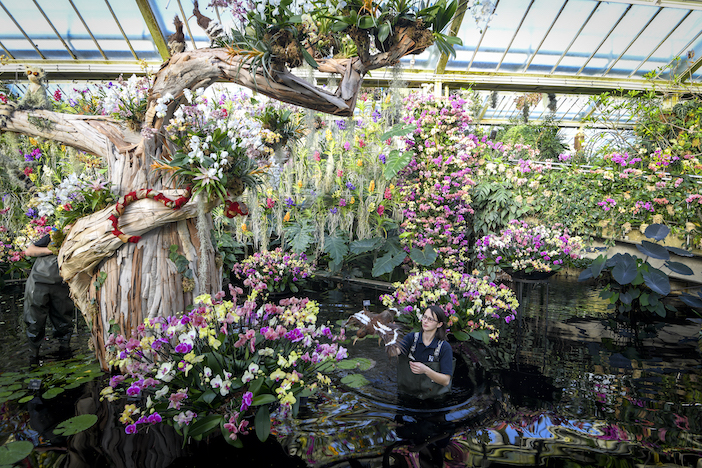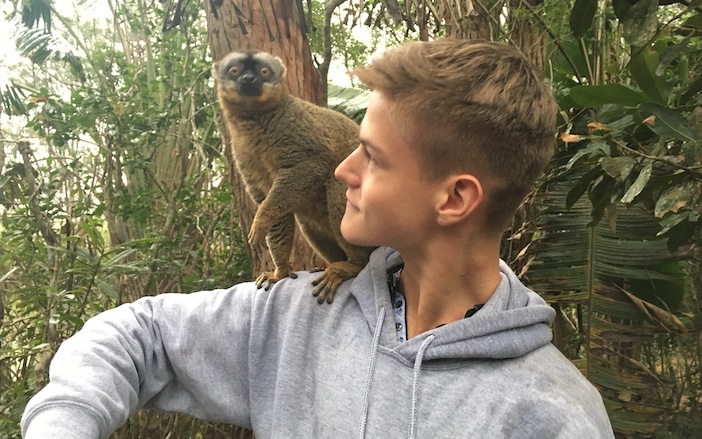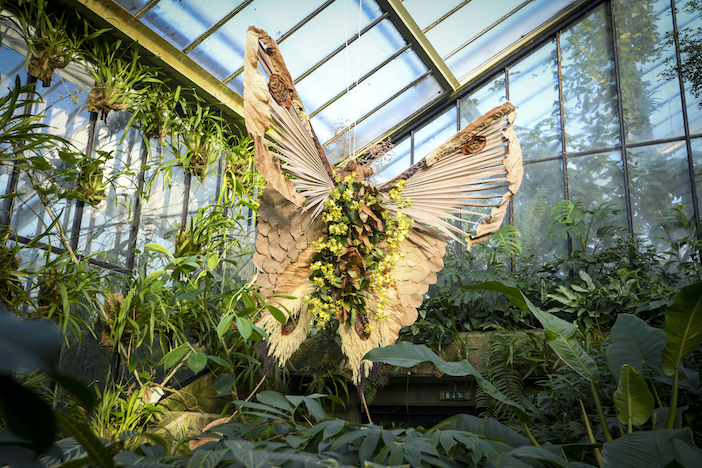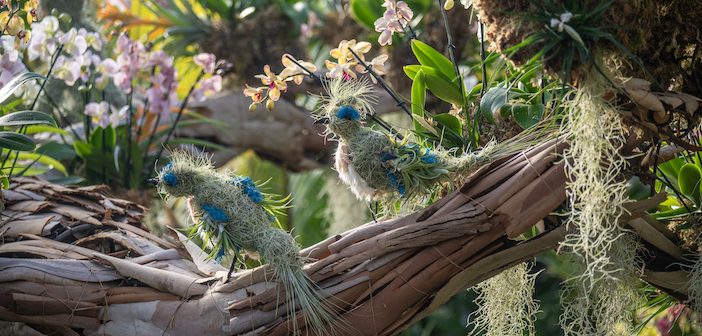This year’s orchid festival at Kew Gardens is a beautiful reminder of a living tragedy, so writes Sarah Tucker…
I’m blessed to have Kew Gardens, arguably the best and one of the largest botanical gardens in the world, a twenty-minute walk from my home. When my son was younger, I would regularly take him and his friends to birthday parties there. That was a bygone era, when they had a ice rink and hosted summer festivals where Jools Holland and retro ‘70s bands would play open air concerts. As my son is now grown up, I have rather neglected the quiet contemplation of the walks Kew offers, especially in the heated glasshouses, where experiencing the Tropics in the middle of a brittle English winter remind me of my travels to places where blanket heat engulfs you as soon as you descend the stairs of the plane.

But there is one opportunity for that I do try to make time for; every year, the orchid house hosts an orchid ‘festival’ in February, denoting the first signs of Spring, and embodying a spirit of hope and potential. The walk to the greenhouse from the main entrance provides a preview of what’s to come; crocuses and snowdrops push their way through the earth as I pass through the grounds to the Princess of Wales Conservatory, where the festival is held. The large lake en route plays host to the Canada geese who, for some reason, also like to sit rather comically on the flower beds, probably much to the chagrin of the gardeners.
Each year the orchid festival has a theme, and this year it is Madagascar. Kew has been working with Malagasy partners based in Madagascar since 1986, to the extent it has a research site there. The Kew Madagascar Conservation Centre (KMCC) documents the thousands of orchid species to be found there, over 80% of which are endemic – and of which 76% are threatened with extinction.

Having visited the country seven years ago, ironically the last trip I took with my boy, I viewed the place as a country where the locals – and particularly foreign businesses basing themselves there – have gnawed into the land like locusts, slashing and burning illegally a habitat featuring lemurs who dance and sing, sixty-seven species of colourful and hypnotic chameleons, amazing butterflies and moths – even their national tree, the iconic baobab, with its bulbous trunk and upside-down branches, is endangered. The local custom is to treat the majestic buffalo-like Kudu to what may only be described as torture, their cries allegedly echoing to the heavens before they die, to conjure good spirits for the families. All this priceless beauty will disappear for the sake of semi-precious stones, and vanilla.
I was angered by what I witnessed. And I was told Sir David Attenborough, on his most recent visit, sobbed quietly, too. The land has been raped. Everyone talks about how the Amazon is being destroyed but what has happened to Madagascar is equally as tragic and shameful. There have been, I am told, attempts to educate the locals in the value of preserving all this rich natural heritage, but the lure of foreign investment makes it challenging, and despite the work of organisations such as the Val Bio Centre, who do amazing work to preserve what is left, I feel much of what was even there since I visited, has disappeared.

All the memories of the beautiful habitats returned when I walked into the greenhouse, which evokes the dramatic beauty of the place. And in some small way Kew is doing its part to demonstrate, educate and contribute to its preservation.
As well as the orchids there are amazing cacti, some resembling giant hairy prehistoric spiders, and as once again the horticultural artists have surpassed themselves with lemurs, chameleons created from orchids and dried palms, with massive moths and butterflies made from indigenous species only to be found in this beautiful, brutalised country. This year, there’s even a display of what a field camp looks like as scientists from Kew document and record the grasses and savannas of Madagascar, one of the most biologically valuable countries in the world.
The Kew Garden’s 28th annual orchid festival takes over the Princess of Wales Conservating during February till 3rd March. For more information, including details of the Orchids After Hours entry, visit www.kew.org. Price for entry is included in entry ticket for the gardens.
Photos courtesy of Kew Gardens (c) RBG Kew




